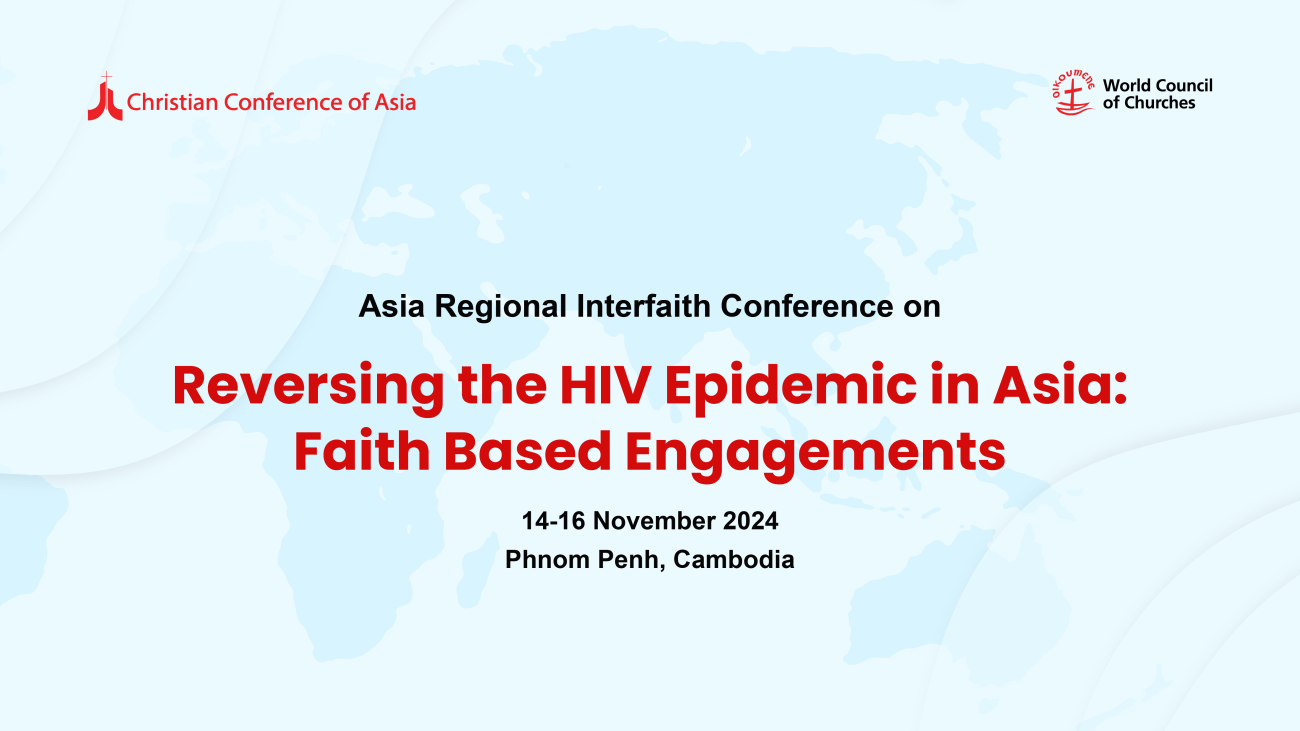CCA-WCC Interfaith Conference on ‘Reversing the HIV Epidemic in Asia: Faith-Based Engagements’ to begin in Cambodia

Chiang Mai, Thailand: The Christian Conference of Asia (CCA) and the World Council of Churches (WCC) will jointly organise a regional interfaith conference on 'Reversing the HIV Epidemic in Asia: Faith-Based Engagements’ from 14 to 16 November 2024 in Cambodia.
Organised as part of CCA’s Action Together in Combating HIV and AIDS in Asia (ATCHAA) programme and the Asian Interfaith Network on AIDS (AINA), the three-day conference will bring together religious leaders, representatives from the United Nations Programme on HIV and AIDS (UNAIDS), medical practitioners, health workers, grassroots social activists, and health-focused NGOs from across Asia to identify priorities and strategies to combat HIV, address stigma and discrimination, and promote inclusion and acceptance of affected persons within diverse Asian communities.
The conference will be opened by CCA General Secretary Dr Mathews George Chunakara and held at the Sunway Hotel in Cambodia’s capital, Phnom Penh.
Key sessions include a presentation by Ms Stela Sacaliuc of UNAIDS, as well as a panel featuring Hindu, Buddhist, Islamic, and Christian leaders exploring possible engagements of faith organisations in HIV and healing processes.
Other main thematic presentations will focus on ‘Addressing Vulnerabilities: Tourism, Human Trafficking, and Migration’, ‘Breaking Barriers and Building Bridges: Mental Health Perspectives’, and ‘Trends in HIV Prevalence Among Youth in Asia’.
A special session on ‘Understanding Cambodian Realities’, along with visits to Cambodia’s "Killing Fields" and the Tuol Sleng Prison Museum—sites of torture during the country’s genocidal regime—will be part of the exposure arranged to deepen participants’ understanding of Cambodia's past, as well as transitional developments in the country and their impact on current health challenges. Despite these challenges, Cambodia has made significant progress toward ending the AIDS epidemic.
“By involving faith leaders and medical professionals, the conference aims to address the root causes of the epidemic, spread awareness, eliminate stigma, and strengthen preventive measures among communities”, stated Dr Ronald Lalthanmawia, coordinator of the Phnom Penh Conference and the ATCHAA programme.
Through interactive sessions, the programme will provide practical training and disseminate information by facilitating intergenerational and interfaith discussions on HIV and AIDS.
With an estimated 6.7 million people living with HIV in the Asia-Pacific region, and high rates of new infections, the World Council of Churches and the Christian Conference of Asia recognise the urgent need to advance faith-based responses in Asia.
More than eighty participants will attend the three-day conference.










